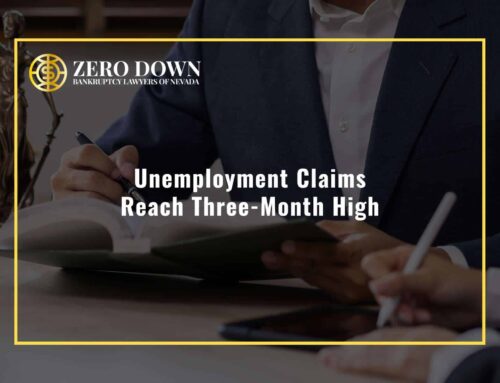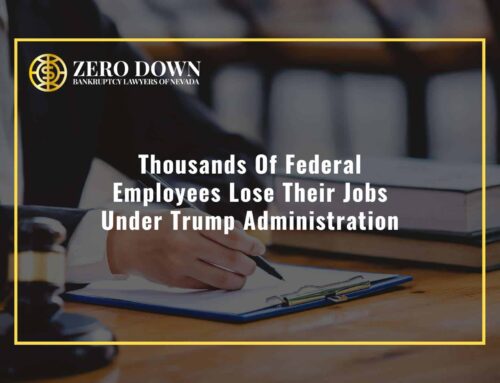Many people file for bankruptcy because they have been named as the defendant in a lawsuit. It isn’t uncommon for a creditor to file a lawsuit and serve a summons after a debtor has fallen behind on payments. If this results in a judgment, the debtor’s credit report will be stained until the judgment is paid off or discharged. Bankruptcy stops lawsuits against the creditor, but what about lawsuits in which the debtor is the plaintiff? If you have filed a lawsuit against someone else, you may have specialized concerns about declaring bankruptcy. You might also be considered a plaintiff in a class action lawsuit with little involvement from yourself. Read on to learn more about the issues that might arise if you file for bankruptcy while participating in a lawsuit as the plaintiff. For your free consultation with a Phoenix-area bankruptcy lawyer, call 602-609-7000.
Bankruptcy Exemptions and Lawsuit Proceeds
One of the several potential issues with filing bankruptcy while waiting for a pending lawsuit to be decided as the plaintiff is that the award might not be protected in bankruptcy. The bankruptcy trustee can take assets from the debtor that doesn’t have a state bankruptcy exemption applied- Arizona doesn’t allow for the use of federal exemptions. This isn’t great for plaintiffs- there is a wildcard exemption available in the federal exemptions that can be applied to any asset of the debtor’s choosing, including a lawsuit judgment. So if you are awaiting a lawsuit judgment but you are also a debtor in a bankruptcy case, your award could be considered a bankruptcy asset. Your trustee has great incentive to seize an award because it will be used to pay off the bankruptcy estate and the trustee also gets to keep a portion of the proceeds. If you expect to receive a settlement or verdict in your favor in a pending lawsuit- for example, if you brought a personal injury claim against the other driver after being injured in a car accident- you need to be careful about every aspect of your bankruptcy filing. Discuss your situation in detail with one of our Phoenix bankruptcy lawyers by calling 602-609-7000.
Which Types of Lawsuits Won’t Be Stopped by Filing for Bankruptcy?
Not every lawsuit can be stopped, whether temporarily or permanently, by a declaration of bankruptcy. Letting a debtor declare bankruptcy to stop these types of proceedings wouldn’t be in the interest of justice. It should also be noted that some debts aren’t cleared by filing for bankruptcy. Lawsuits that are immune from the automatic stay that goes into effect when a bankruptcy petition is filed include:
- Criminal prosecutions- both misdemeanors and felonies
- Child custody cases- both new cases and modifications
- Child support cases- additionally, if the debtor has a child support wage garnishment, filing for bankruptcy might not stop the garnishment. Only filing a full payment Chapter 13 bankruptcy will stop a wage garnishment stemming from a child support balance in arrears.
- Dissolution of marriage (divorce), annulment, and legal separation cases
- Evictions when the landlord has already been granted a writ of possession
How Long Does the Automatic Stay Last?
The automatic stay is meant to last for the entire duration of a bankruptcy case, but there are always exceptions. Chapter 7 bankruptcy cases are typically discharged within 3 to 6 months. However, a creditor can request that the court excuse them from the automatic stay at any point during either type of bankruptcy filing. This is known as a motion for relief from the automatic stay. A motion for relief from the automatic stay only applies to the creditor who files the petition- for example, if the court grants a motion for your home lender to proceed with foreclosure due to repeated failures to make your mortgage payment, it won’t give another one of your creditors the right to file a lawsuit against you or use a lawsuit judgment to garnish your wages, levy your bank account, etc.
Chapter 13 bankruptcy lasts either 3 or 5 years, and the automatic stay should last that long as well. However, some circumstances can reduce or restrict the protections from the automatic stay in Chapter 13 bankruptcy. Sometimes a debtor will file for bankruptcy once and the case will be dismissed, resulting in the debtor filing their case once more. This is sometimes a strategic move, and other times simply based on mistakes and errors in the filing. Multiple filings in 12 months can result in what is known as an “exploding automatic stay.” Here, the protections from the automatic stay will terminate after 30 days. The debtor will be left to fend against creditors despite being in an active bankruptcy case in good standing. If you have questions about how long the automatic stay will last under your specific circumstances, call 602-609-7000 to set up your free consultation with our firm.
What If Someone I Have a Judgment Against Files for Bankruptcy?
If you were the plaintiff in a lawsuit that is already complete, you may have a money judgment against the defendant. This would make you a creditor, and the defendant your debtor. Your judgment against the defendant may also be accruing interest. That might prompt that person to declare bankruptcy.
If a debtor declares bankruptcy, the automatic stay stops collections until the case is discharged or dismissed. Just like credit card companies, medical providers, etc., you will be included among the list of creditors who can’t try to collect your debt while the bankruptcy is active. If you wish to proceed with collection despite the automatic stay, you will need to submit a petition for relief from the automatic stay and make a clear and convincing argument of why this motion should be granted.
Not all debts are eligible for discharge in bankruptcy. For example, if you have a judgment against a defendant for defrauding you, this likely won’t be cleared by a Chapter 7 bankruptcy filing. You might need to file an adversary proceeding if you believe that your debt has been included in the bankruptcy case in error. If you anticipate one or more adversary proceedings in your potential bankruptcy filing, you need expert representation for your case- call 602-609-7000 for your free consultation.
Review Your Potential Bankruptcy Case with One of Our Experienced Attorneys
Filing for bankruptcy comes with many benefits, but these can be accompanied by risks and issues if your case isn’t filed correctly. A bankruptcy filing could cost you more than the debts being discharged if you are expecting a lawsuit settlement or judgment. With what’s at stake, you should make sure your case is handled by a dedicated professional. Whether you anticipate pushback from creditors, attempts to seize your assets by the trustee, or simply don’t know what to expect, Arizona Zero Down Bankruptcy Lawyers can help. With post-filing payment plans that allow you to pay for your fees after the automatic stay has been activated, bankruptcy representation might be more affordable than you think. See if you qualify today by scheduling your free consultation, contact us through our online form, or call us at 602-609-7000.
Arizona Offices
Phoenix Location:
343 W Roosevelt Street, Suite #100
Phoenix, AZ 85003
Email: [email protected]
Phone: 602-609-7000
Mesa Location:
1731 West Baseline Rd., Suite 101
Mesa, AZ 85202
Email: [email protected]
Glendale Location:
20325 N 51st Avenue, Suite #134
Glendale, AZ 85308
Email: [email protected]
Tucson Location:
2 East Congress, Suite #900
Tucson, AZ 85701
Email: [email protected]










